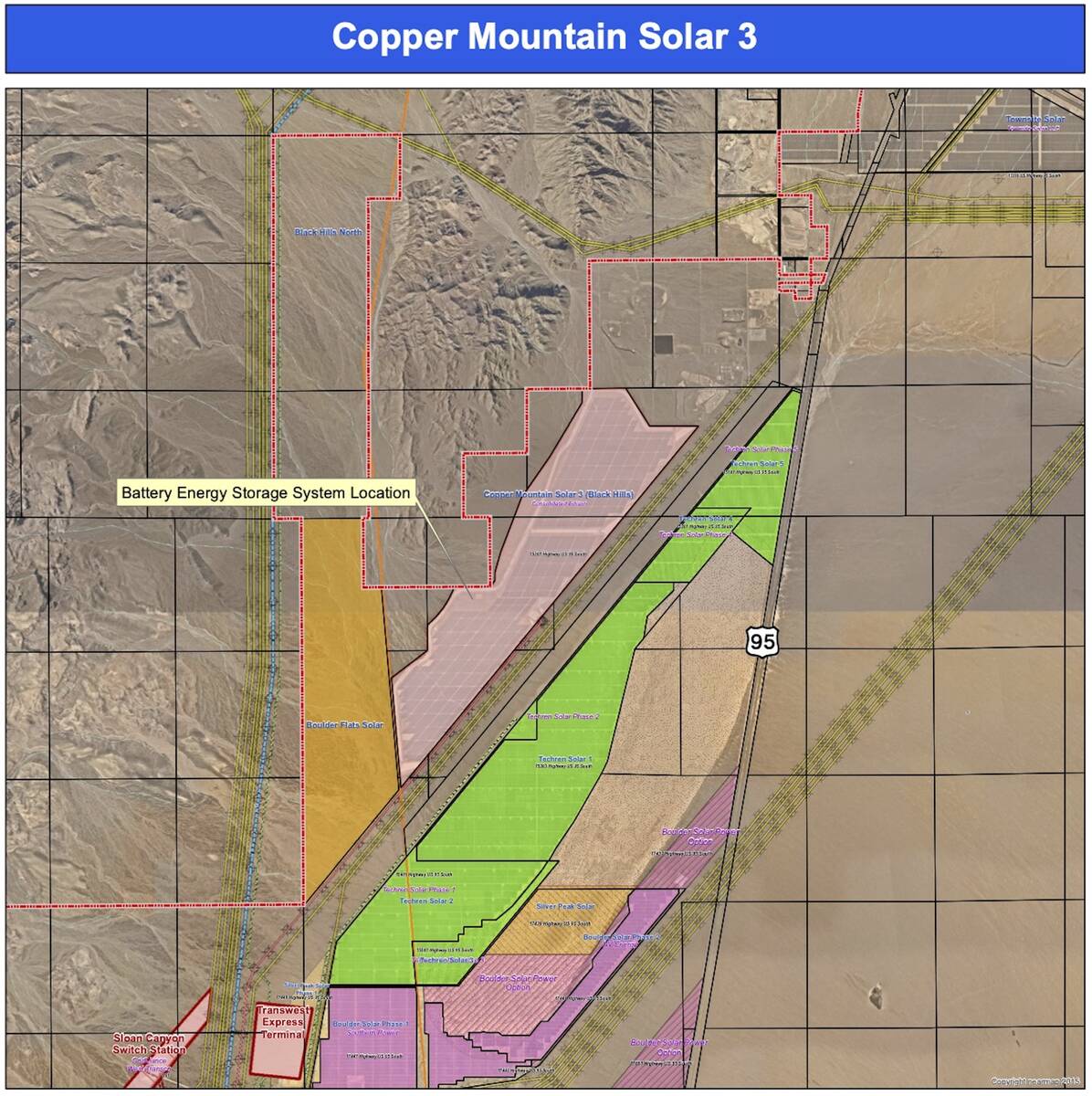Rewrite for solar lease gets council’s OK
Sometimes the most consequential long-term issues come and go in city council meetings with little or no discussion.
Such was the case during the only meeting in July when the council, without questions or discussion or public comment, voted unanimously to rewrite the lease agreement covering the Copper Mountain 3 solar development to open it up for battery storage of energy as well as generation.
The public did have a chance to comment, but no one showed up to do so.
The leasing of land in the Eldorado Valley — purchased in the 1990s as a buffer to ensure that residential development would not increase just outside the limits of a city with the harshest anti-growth ordinance in the state — began nearly 20 years ago with a pair of plants near the existing natural-gas-fired power station in the area, which is a major source of power for the city.
One of those two plants, a small 10-megawatt (MW) demonstration plant was completed by Sempra Generation in 2008. Following that successful demo, Sempra began developing the Copper Mountain facilities. The first, a 58MW plant went online in 2011. Copper Mountain 2 came fully online in 2015.
Copper Mountain 3, then the largest of the facilities and also the closest to Boulder City proper, came online about the same time, with facilities 4 and 5 coming online in 2017 and 2021, respectively.
The facility at question in the vote is Copper Mountain 3.
It covers, or at least the lease covers, 1,375 acres for which the leasee pays an annual fee of $1,612.87 per acre. The original developer, Sempra Renewables, announced in 2018 that they were selling all of their solar assets as well as one wind-generation facility to Consolidated Edison for $1.54 billion in cash. Consolidated Edison, commonly called “ConEd,” is a New York-based power company that provides power and gas to millions of customers in New York and New Jersey. It has been traded on the New York Stock Exchange without interruption since 1824, longer than any other company on the exchange.
The rewrite covers a little more than 2% of the land leased for Copper Mountain 3, about 29 acres. When the facility was finished, this land was not needed for solar generation and has sat unused, but paid for, for a decade.
Under the new terms, the lease will allow ConEd, or an affiliate, to develop a battery facility for storage of electricity generated there. Solar developments often generate more power than the grid can absorb during daylight hours and that power is lost, usually in the form of heat. A storage facility allows power generated but not used during daylight hours to be stored and then used after the sun has set, making the solar facility substantially more efficient.
According to a city report, as the lease for the facility had been amended four different times between the start of construction in 2013 and today, the old lease was vacated and all of the former amendments, plus this new one allowing for battery storage, were rolled into a new lease agreement.
Under the new terms, in addition to the approximately $2.2 million the city gets from the existing lease each year, the tenant will pay a one-time fee of $149,000 plus a fee of $2,000 per megawatt hour of storage once the facility begins commercial operation.
Though Boulder City gots only a small amount of it’s total electricity from the solar fields (according to a city spokesperson, “Boulder City does not have any current hold or interest in the power generated at Copper Mountain. The only energy we get is from utility scale solar is from Townsite Solar.), the money generated from those leases accounts for a huge portion of the city’s budget.
Currently, 35% of the budget comes from leases with only the regional consolidated sales tax accounting for a larger portion of the pot.















